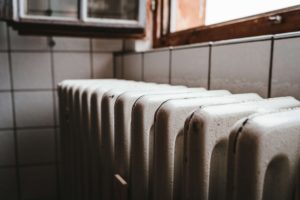Q&A with Dr Babatunde Anifowose – What the fuel crisis means for the future
Air Quality News talks to Dr Babatunde Anifowose, Professor at Coventry University’s School of Energy, Construction and Environment to find out more about the current fuel crisis.
Why do we have a shortage of fuel?
The Covid-19 pandemic meant that a lot of the fuel production that was meant to take place didn’t happen.
This meant that many of the global reserves were depleted and now we are suddenly in a situation where the whole world is returning to normal and we do not have enough fuel.
It is a simple question of supply and demand.
Has climate change impacted the shortage?
At the same time as the pandemic, a lot of companies and institutions are rightly trying to move away from fossil fuels and so there has been a lot of divestment in oil and gas activities.
While I support switching to renewables, it has to be gradual, otherwise, we will continue to see problems in terms of hiccups in supply.
When supply and demand do not balance you are left with the kind of price war that we are experiencing now.

If we generated more renewable energy in the UK would it help us to be less reliant on the global supply?
On the one hand, yes if we improve or increase the quantity of renewables at home it will mean that we are less reliant on what is happening externally.
But the truth of the matter is it is not as straightforward as that, it is actually a very complex web of problems.
Just because we have more wind or solar energy does not mean we will never experience energy shortages. We still have no control over when there will be sun, and how intense it will be and we cannot control when or where the wind blows.
What can we expect to see in the future?
These things are quite difficult to predict but I envisage a scenario in the next 12 /24 months where we can restart production and then prices will stabilise again.
But in the short term, we are going to have to live with high energy prices for a while because when you have too much money chasing too few goods, you have inflation and this means you have high prices.
What do we need to do to address the issue?
I think the critical thing to point out is that this is not just about increasing the amount of energy that we have at home. I think the solution to the problem has to do more with us as humans.
People need to realise that they cannot leave this to the government’s or policymakers alone. We all need to look at making behavioural changes, this is something we can all do and it will not only help to reduce emissions but it will also help to reduce how much energy we need.
It’s not just about making more renewables available, because if you make more renewables available, then the public won’t change their behaviour towards their use of energy.
Photo by John Cameron
















